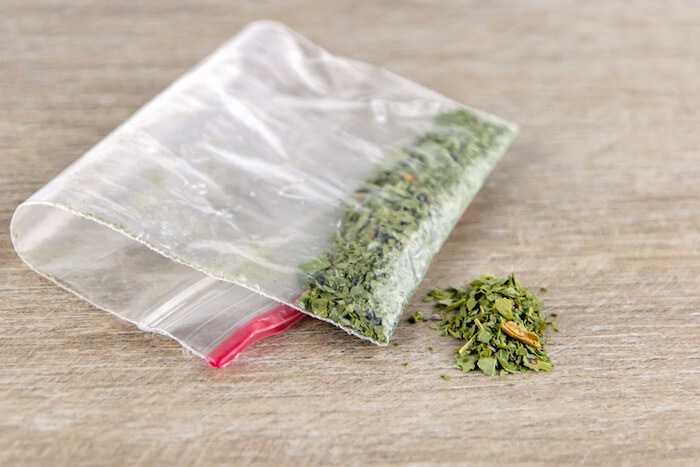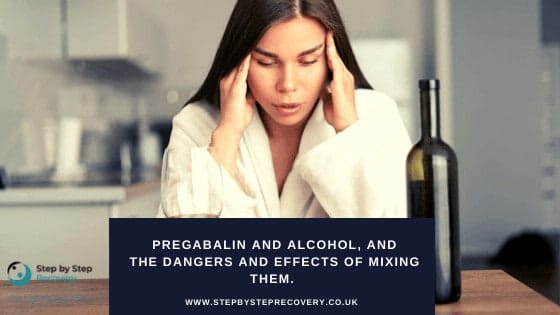Updated May 2023
Sleeping pills and prescription medications are commonly used over-the-counter (OTC). But they can pose a variety of risks. From dependency and addiction to adverse side effects, these medications can be extremely dangerous.
This article delves into why sleeping pills can be dangerous and how to recognise signs of sleeping pill dependence and addiction.
Should I Take Sleeping Pills?
Sleeping tablets, also known as sedatives or tranquillisers, can be helpful if you are highly stressed during an exam period or while working on a challenging project. Sleeping pills can also be useful when your sleep patterns are disturbed due to recent travel or if you keep waking in the night or early morning.
This type of short-term insomnia and sleeping disturbance can lead to further anxiety or stress, which becomes a vicious circle. Using sleeping pills for a short period can be an effective way of breaking out of it. But are sleeping pills dangerous?
While sleeping pills may be effective in helping you if you are struggling with insomnia due to a stressful life event or after travelling abroad, they can be incredibly dangerous. You may think that over-the-counter (OTC) pills are safer than prescription sleeping pills, but this is not the case. If you don’t take them as directed, both can cause dependence and addiction.
What Are Sleeping Pills?
Sleeping tablets are sedatives or tranquillisers classed as sedative hypnotics that slow down the body and brain functions. Various types of prescription medications that cause addiction have received media attention, including benzodiazepines, otherwise referred to as tranquillisers. While they can be used as anti-anxiety medications, they are also the most commonly prescribed sleeping pills.
It’s not only the prescription sleep aids that are dangerous. One type of over-the-counter medication used for sleeping disorders that can lead to dependence and addiction is diphenhydramine. This is contained in numerous brands of antihistamines that can be bought without a prescription.
There are numerous other sleeping pills — and it’s not only the prescription versions that are dangerous. One type of over-the-counter medication used for sleeping disorders that can lead to dependence and addiction is diphenhydramine. This is contained in numerous brands of antihistamines that can be bought without a prescription.
Although it is generally considered safe to take sleeping aids containing diphenhydramine and prescription sleeping pills or tranquillisers occasionally, it is relatively easy to build up tolerance and dependence over the long term.
<H2> How Do Sleeping Pills Work?
Sleeping pills, also referred to as sedative-hypnotic drugs, work by targeting specific neurotransmitters in the brain to induce drowsiness and facilitate sleep. The most common mechanism involves enhancing the activity of gamma-aminobutyric acid (GABA), which is an inhibitory neurotransmitter. GABA works to quiet the activity of neurons in the brain, promoting relaxation and reducing arousal. Sleeping pills such as benzodiazepines and non-benzodiazepine hypnotics exert their effects by amplifying GABA’s actions, having sedative effects and inducing a state of calmness and drowsiness.
Additionally, some prescription sleeping pills target other neurotransmitter systems to promote sleep. For instance, melatonin receptor agonists mimic the action of the hormone melatonin, which regulates the sleep-wake cycle. By binding to melatonin receptors in the brain, these medications help synchronise the body’s internal clock and promote the onset of sleep. Antidepressants, particularly those that affect serotonin levels in the brain, may also be prescribed for chronic insomnia, although they are typically used off-label. These medications can help regulate sleep patterns and improve sleep quality for individuals with depression or anxiety-related sleep disturbances.
<H2> Should I Take Sleeping Pills?
Sleeping tablets, also known as sedatives or tranquillisers, can be helpful if you are highly stressed during an exam period or while working on a challenging project. Sleeping pills can also be useful when your sleep patterns are disturbed due to recent travel or if you keep waking in the night or early morning.
This type of short-term insomnia and sleeping disturbance can lead to further anxiety or stress, which becomes a vicious circle. Using sedative drugs for a short period of time can be an effective way of breaking out of it. But are sleeping pills dangerous?
While prescription sleep medication may be effective in the treatment of insomnia due to a stressful life event or after travelling abroad, they can be incredibly dangerous. You may think that over-the-counter sleep aids are safer than prescription sleeping pills, but this is not the case. If you don’t take them as directed, both can cause dependence and addiction.
Zopiclone in the UK
Zopiclone is prescribed in the UK, and is a powerful medication that is only supposed to be used short term. Prescribed for treating severe insomnia, zopiclone targets a calming chemical in your brain known as gamma-aminobutyric acid (GABA). Typically taken as tablets, a liquid formula is available, which can be especially dangerous when this medication is abused.
Certain medication combinations can have dangerous interactions with zopiclone, including medicines for:
- Schizophrenia or bipolar disorder
- Epilepsy or anti-seizure medication
- Anxiety and depression
- Medicines for hay fever or allergies (e.g. chlorphenamine or promethazine)
- Strong painkillers, such as codeine or oxycodone
- Antibiotics used to treat infections (e.g. erythromycin or clarithromycin)
- Medicines used to treat fungal infections (e.g, ketoconazole or itraconazole)
- Ritonavir — a medicine used for HIV infections.
Although rare, serious side effects may occur with zopiclone use, and there is also a possibility of having a severe allergic reaction (anaphylaxis) to zopiclone. Potential side effects include a skin rash, wheezing, chest or throat tightness, trouble breathing or talking, or swelling in the mouth, face, lips, tongue or throat. If you experience any of these health conditions, call 999 and explain your symptoms and that you have taken zopiclone.
Sleeping Pills Side Effects
When people ask, “are sleeping pills dangerous?”, they often mean, are there any side effects? The actual side effects can often put you in danger in the wrong circumstances. Harmful side effects associated with sleeping pills containing diphenhydramine and prescription sleeping pills or tranquillisers containing benzodiazepines include:
- Dry mouth
- Headaches
- Poor coordination
- Dizziness
- General fatigue.
Signs of Addiction to Sleeping Pills
Taking sleeping pills can be habit-forming. You may be afraid you won’t sleep without taking them, and over time, this can lead to dependence. Taking sleeping pills often will increase the potential of building a tolerance, meaning you need to take a higher dose for the pills to work. Long term use makes tolerance and addiction almost inevitable.
Common withdrawal symptoms of sleeping pills include:
- Nausea and vomiting
- Hallucinations and delusions
- Anxiety and depression
- Sweating.
Experiencing withdrawal symptoms from sleeping pills indicates your body and brain are becoming dependent. Although signs of addiction may not be obvious, if you take more than directed or use sleeping pills recreationally, you are probably already addicted.
Cravings are another clear indication of addiction. When you find yourself counting down to your next pill, this is a clear sign of addiction.
Dangers of Sleeping Pills
Some of the rare side effects of sleeping pills can be dangerous in the short and long term. The main danger is death from overdose, and it is important to seek medical attention if you or someone else has taken more sleeping pills than directed or is experiencing:
- A fast or irregular heartbeat
- Blurred vision
- Respiratory depression (shortness of breath)
- Tremors or seizures
- Urinary retention or severe pain when urinating
- Paresthesia (a burning or prickling sensation most commonly felt in hands, arms, legs, or feet)
- Dyskinesias (involuntary movements of the face, arms, legs or body).
Additionally, it is essential to stop taking sleeping pills and speak with your GP or an addiction specialist if you experience sleeping pill side effects, including:
- Mood swings
- Anxiety and depression
- Nightmares
- Memory loss
- Difficulty concentrating or confusion.
The Danger of Combining Alcohol and Sleeping Pills
Alcohol is often combined with sleeping pills. Mixing sleeping pills with alcohol increases the risk of dizziness, confusion and impaired coordination, which may result in injury and death. In addition, combining sleeping pills with alcohol increases the risk of respiratory depression, heart failure and death. If you are prescribed sleeping pills, ensure you speak to your doctor about the potential risk of combining them with alcohol.
Combining sleeping pills and alcohol to increase the side effects or “high” if they are taken for recreational purposes can lead to a faster tolerance and significantly increase the risk of addiction.
The Danger of Combining Opioids and Sleeping Pills
Mixing prescription drugs without your doctor’s approval can be dangerous. A prime example is the combination of central nervous system (CNS) depressants like prescription sleeping pills and opioid-based painkillers, such as oxycodone, often known as OxyContin.
A study conducted by Stanford researchers which included over 300,000 people who had been prescribed opioids and a benzodiazepine (the most common type of sleeping tablet), indicated combining these drugs can significantly increase the risk of needing emergency medical treatment.
Suppose you become dependent on CNS depressants like sleeping pills and opioids. In that case, you may experience withdrawal symptoms ranging from anxiety and insomnia to seizures and hallucinations. Long-term, the risk of taking opioids and sleeping pills is the potential for irreversible damage to your brain and vital organs, leading to numerous long-lasting issues even after discontinuing the misuse.
How long should I take sleeping pills?
Sleeping pills are typically recommended for short-term use to manage acute insomnia or sleep disturbances. Long-term use should be avoided due to the risk of dependence and tolerance. It’s essential to work with a healthcare provider to address underlying sleep issues and develop a comprehensive treatment plan.
Alternatives to Sleeping Tablets
Stopping taking sleeping tablets can be very challenging, and you shouldn’t be afraid to speak to your GP if you are concerned about the number of tablets you take or the length of time you have been using over-the-counter sleeping pills. One way to ease yourself off sleeping pills is to try behavioural and lifestyle changes.
Research has shown cognitive behavioural therapy (CBT) may help if you struggle with insomnia or sleep disturbance. However, if you are reading this post, you will likely need professional support to give up sleeping pills. If you want to find out more about CBT, there is a sleep problem and insomnia self-help guide from the NHS.
Treatment for Sleeping Pill Addiction
If you are using prescription sleeping pills and find they are no longer working, or are causing side effects, speak to your doctor before making any changes to your medication. You should also never “just” increase the dosage of over-the-counter sleep medications. Even if you only plan to do it once, it can be dangerous and result in overdose and death.
Using sleeping pills for fun or relaxation is a fast route to dependence and addiction, which can quickly spiral and take over your life. If you are struggling with any side effects or concerned about addiction, speak with your GP, or you can contact FRANK for support and more information.
Sleeping pill addiction is a serious condition. At Step by Step Recovery, we can provide outpatient addiction treatment in London and residential rehab in Essex. Please complete our online assessment form or call us on our free phone number on 0800 170 1222 for free, confidential advice.




